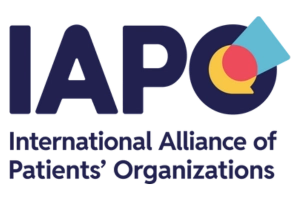The International Alliance of Patients’ Organizations (IAPO) is a global non-profit alliance focused on promoting patient-centered healthcare worldwide. Established to represent patients of all nationalities across a broad spectrum of disease areas, IAPO unites patients’ organizations at international, regional, national, and local levels. With a membership base exceeding 300 organizations from over 70 countries, IAPO advocates for the inclusion and active participation of patient voices in healthcare policy-making and health system reforms. Its mission centers on building healthcare systems that prioritize patients’ needs, rights, and contributions through capacity building, advocacy, and cross-sector collaborations.
IAPO leverages its extensive network of member groups and stakeholders—including healthcare professionals, policymakers, researchers, and industry representatives—to influence international, regional, and national health agendas. The alliance’s advocacy efforts have notably included emphasizing the role of patients in the design and delivery of care, raising awareness of non-communicable and chronic diseases, and campaigning for patient-centered approaches in legislation and healthcare policy development.
Registered in the EU Transparency Register as an accredited lobbying entity, IAPO actively engages with EU institutions to influence healthcare policy. Their lobbying activities focus on promoting patients’ rights, improving access to healthcare, enhancing transparency in health systems, and ensuring health policies reflect patients’ real-world needs.
IAPO’s strategic direction is guided by a Governing Board composed of elected representatives from member organizations, while its operational activities are managed by an experienced staff team based in London.
The alliance maintains and nurtures partnerships with a wide array of organizations within and outside the EU, fostering a collaborative environment aimed at advancing global patient-centric healthcare frameworks. Financial transparency is part of their commitment as reflected in their declarations in the EU registry.


